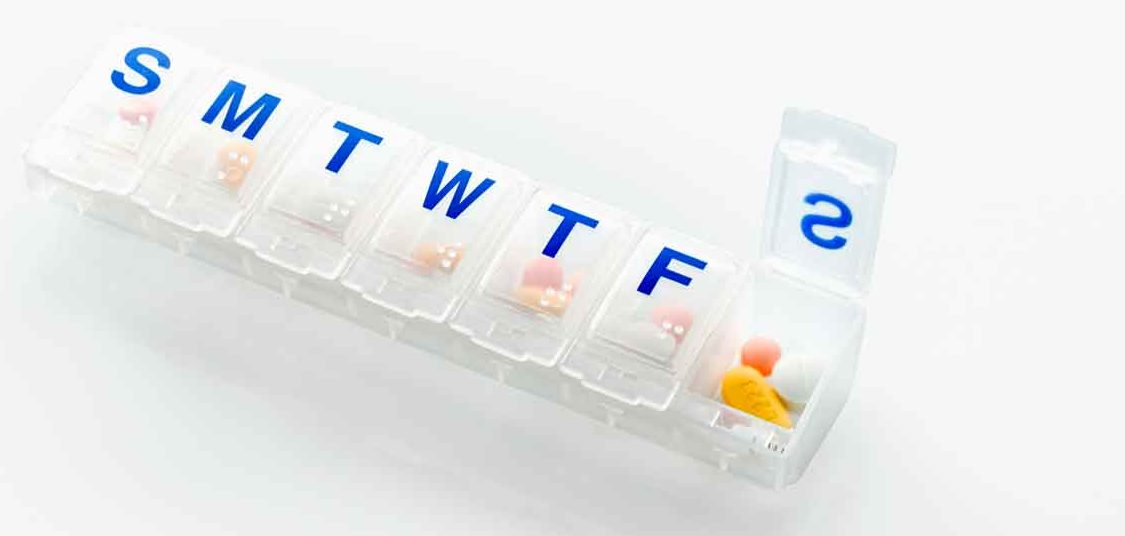What Pill Dispenser Is Best for You?

Did you take your medications today? Some people need to be reminded. Here’s an overview of practices and pill dispensers that work and which tactics don't.
Many people take a few vitamins and other medications during their morning routine. Sometimes, you forget to take your meds, and other times you may accidentally double the dosage. It’s not intentional, it probably just slipped your mind.
YOU MIGHT ALSO LIKE: Why Are Prescription Drugs Expensive?
For some people, skipping or doubling up on medications can be harmful. Meryl Moran has two pill dispensers in her kitchen cabinet. They list the days of the week. She marked one with a permanent marker that says “a.m.” and the other with “p.m.”
“When I get my meds from the pharmacy, I immediately place a week’s worth in these clear plastic dispensers,” she said. “They are cheap, simple to use, and I can look at the day of the week and know if I took my meds or not. I take my morning meds at breakfast and my evening pills right after dinner. I developed a routine.”
She reloads her dispensers on Sunday night, so she is set for the week ahead. “Before that, I was overwhelmed and often forgot to take my pills,” she said. “These containers are lightweight, so I can travel with them, too.”
She takes three morning pills and two evening ones. Her pills easily fit into the long rectangular dispensers.
Most people use simple dispensers to keep track of their medications. “I have two dispensers,” Dick Muldoon said. “One sunshine white (it’s a bright white shade) contains my morning pills and the sunset yellow one is for evenings.”
Sharon Downey’s mom takes medications that come in blister packs from the drugstore. Each day is marked. Morning, noon, and night pills are clearly labeled. “Simple pill dispensers with compartments that mark each day of the week seem to be the most popular,” Downey said. “My mom and her friends live in a retirement village, and most of her friends use those rectangular shaped plastic pill dispensers with the days of the week on them.”
Many of Downey’s friends uses a popular plastic pill dispenser that holds a week’s worth of morning and evening pills. It’s lightweight and clearly marked.
Many pill dispensers are low tech. The downside is that they don’t hold a lot of pills. They do, however, come in different sizes.
Downey’s husband, who works in the tech industry, tried to get his mother-in-law a pill reminder app for her phone. “It just didn’t work,” Downey said. “My husband loves his iPhone and all of his apps. My mom, not so much. She wasn’t going to use it. Most of the time, she doesn’t turn her phone on.”
If you prefer high-tech gadgets and need an audible reminder, check out GMS Med-E-Lert. You can adjust and program the volume, which can last between 30 minutes and until the medication is taken. It has a blinking light for the hearing impaired and a smart locking mechanism so patients can get their medications only at the right time of day.
The GMS Med-E-Lert is about the size of a small paper plate. It’s lightweight and can hold 28 doses of pills. You can also set reminder alarms. It retails between $80 and $100. While the beeps are loud, if you’re not nearby, you may not hear it.
If you hate refilling pill dispensers, check out Livi. It stores 90 days of meds with enough room per day for up to 15 different pills. It’s designed to keep track of your medication history and can share that information with your doctors, caregivers, and pharmacist.
It also provides easy-to-understand instructions about how to take your pills (such as with water, on an empty or full stomach, or with food.). If you miss a dose, a customer service rep at Livi will text your caregiver. You can also adjust the volume of the reminder alarm.
Martin Rudd purchased MedMinder for his father who has Alzheimer’s disease. What he likes most about it is that it won’t open until it’s time for the medication. “My dad takes 15 pills each day,” he said. “His caregiver programs MedMinder because my dad takes his pills at five different times a day. It’s confusing to keep track of which pills to take and when. So, this helps, a lot. It also reminds his caregiver.”
MedMinder flashes a light, sounds a beep, and then unlocks and dispenses the medications. Rudd can log on to his computer to see if his dad has complied. If he hasn’t, a prerecorded voice of Rudd’s son reminds his father to take his meds. If his dad still doesn’t, his father gets a reminder phone call and Rudd gets a text, email, or call from MedMinder.
The MedMinder is a rental, and costs $125 a month without the company’s pharmacy services. “It’s more than just a machine,” said Rudd. “We are paying for peace of mind. With my dad’s Alzheimer’s he’s quite forgetful. This system ensures he takes all of his meds at the correct times each day.”
There are positives and negatives about pill dispensers, ranging from how many meds they can hold to the price. Talk to your pharmacist and physician for recommendations.
Updated:
November 27, 2023
Reviewed By:
Janet O’Dell, RN